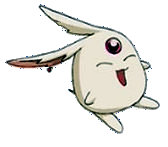Home
「モコナ=モドキもドッキドキ!!あぁーんふぅー!」
Name: Juan Pablo Yánez Trujillo
Birthplace: Quito -
Ecuador
Education:
Study course:
My GPG-Key:
http://www.sakuranohana.org/gpg/shaoran.asc -----BEGIN PGP PUBLIC KEY BLOCK-----
Version: GnuPG v1.4.5 (GNU/Linux)
mQGiBEULRGMRBADYk+QiJzE4+2BUeGTl3OUoPF0ZZj50ivIaF5MYgkeixjY+nwNG
DPI1GhU6Iz8stYqu5HqNv7DHmf0lyll0Hp4+BmGQ8gZBqn50HUw7M6OGPN6fkgQ5
IFzNuRKq9LNPv+XCX1av0UX+Xrr7cyn2YkfkFwhTN5a1K/DJwyGueNdlAwCg6OW5
j+y0K2ghPaqjj2K/mx7BG6cD/jBNQYw2iL/6AI6mMlVyU2yQDitg5CbkToehJqJ0
lQSusd693EjXFrcWm4yeySNUgpGWNztRKp6Nze5UHz7wE0x9D4rid7J7ldNRqq9+
wwyN+18vn723OlgVX6Y83MLAmHNXD7uSXBRQ/lwAqC5hoJKhew00pzjk/wuICR+b
O/V4BACMOeCzbhL4ELlRCJE5HzgTuo2rY11NVwM3TmlgClIXXU9qY2agxmKwoQtw
DMDfRvnOc5UaYJbL871hN2CRZXtO0mtjI6SYbjpCkY6+vM1hL79gNaxlTt0BMway
neAphubOl4d97OlvXH+340ZQ7wO5Qo4i7j7lfw63EnuWIl20aLRDUGFibG8gWWFu
ZXogVHJ1amlsbG8gKHN1cGVydHV4KSA8eWFuZXpwQGluZm9ybWF0aWsudW5pLWZy
ZWlidXJnLmRlPohgBBMRAgAgBQJFC0RjAhsDBgsJCAcDAgQVAggDBBYCAwECHgEC
F4AACgkQDzf8xo+0xRXzhQCgjZvUpQoTZbGYFuc4r/6KM7kl2LAAoKS9yTHWJ16e
JRBTaWgONLUA3HryuQINBEULRGwQCACW/18PWpZ/LEpTruo2Sol8CS8OeUqXqz2j
tZlB2nB97zSU3EFRnFdG/P74uNGu/DGSqU+sh5+tYnhJ/4x1bQpZiBoyfEtKAC5T
Z4ACTZjDI8KGDjE9qU6obb0FG+bDYuT3oVcbmI9TEqPfTULWhzsw9ivwJVjint2A
xg6kz/P2Ty6xnkdl112x2GpnSV3RLRLZQSPZrTHEjKpyIf7ZLrAcR0widpQEpVIK
DraeU+/qZpoTpxbBWNKYiwYFHYlRbUD3wVdf9GW8fy434X2xthaadb7TGYjChbuY
80X14dOpoLXHupvCVvq+9LTnQBM6YV2hOcZKOy32r0gPG0lsQsjnAAQLB/9ib3pl
+yTgn89sdMTFUC639cu2UUn5VHWiitas8e/BEFPF9CfC7ES0ChCEofmMpuJRxPyv
rVMOJNgk9I2GDwwyY9zyWPJreLLtNmG34IikvBALkQu27C2SM4YPFWWdjtZQtKpl
TVOp0TGxYlqy0qy/YWfQnMPNaWcXRPow2ghBeZGhhyXA6+eZoAWTbMNKgSgkPXkc
EfTxkoGCgQHmmpNM7Trz/dcWn86oNaK06AogaT6wjy8XdBkzLgXX30TAKPr8eFxM
65dkhg5ZEhQxe9hKfYxTOZMTEuIsqMz6981YEYkUbj9LFxnpeg1jBJsXgu15EZIZ
MICLaP1D8P5yzfKaiEkEGBECAAkFAkULRGwCGwwACgkQDzf8xo+0xRUmPQCgi3x2
PTgda1LvEmKYgDNdrb/d81kAn0iNqWemy9BpAq63gwZdWUtNTIKJ
=hzEy
-----END PGP PUBLIC KEY BLOCK-----
Linux-User:
Registered Linux User #359403
Interests & Hobbies
Computer science and programming, Gentoo Linux
Fantasy books: I read everything about Middle-earth and
Sports: karate, swimming, cycling, triathlon
Languages I like a lot: Japanese, German
Nintendo 64 games like Mario 64 or Zelda
My Nerd Score *lol*
My vimrc file
Download file vimrc [1.9K], UTF-8 encoding
My japanese kana table
I wrote this small japanese kana table with some little explanations. It is not perfect, but it may be useful for copy&paste (if you don't use
input methods systems like scim). I'm am currently learning japanese and I always loved the japanese culture and language.Download file kanas.txt [6.8K], UTF-8 encoding
Japaese's kanas
===============
The encoding of this documents is UTF-8
Table format:
- The first character is the kana character (UTF-8 character)
- the second character is the romanji character
Hiragana (ひらがな)
===================
┌--------------------------------------------┐
| あ a | い i | う u | え e | お o |
|--------+--------+--------+--------+--------|
| か ka | き ki | く ku | け ke | こ ko |
|--------+--------+--------+--------+--------|
| さ sa | し shi | す su | せ se | そ so |
|--------+--------+--------+--------+--------|
| た ta | ち chi | つ tsu | て te | と to |
|--------+--------+--------+--------+--------|
| な na | に ni | ぬ nu | ね ne | の no |
|--------+--------+--------+--------+--------|
| は ha | ひ hi | ふ fu | へ he | ほ ho |
|--------+--------+--------+--------+--------|
| ま ma | み mi | む mu | め me | も mo |
|--------+--------+--------+--------+--------|
| や ya | | ゆ yu | | よ yo |
|--------+--------+--------+--------+--------|
| ら ra | り ri | る ru | れ re | ろ ro |
|--------+--------+--------+--------+--------|
| わ wa | ゐ wi | | ゑ we | を wo |
|--------+--------+--------+--------+--------|
| | | | ん n | |
|--------+--------+--------+--------+--------|
| が ga | ぎ gi | ぐ gu | げ ge | ご go |
|--------+--------+--------+--------+--------|
| ざ za | じ ji | ず zu | ぜ ze | ぞ zo |
|--------+--------+--------+--------+--------|
| だ da | ぢ ji | づ zu | で de | ど do |
|--------+--------+--------+--------+--------|
| ば ba | び bi | ぶ bu | べ be | ぼ bo |
|--------+--------+--------+--------+--------|
| ぱ pa | ぴ pi | ぷ pu | ぺ pe | ぽ po |
└--------------------------------------------┘
Yōon-table for Hiragana
┌------------------------------------------┐
| || ゃ ya | ゅ yu | ょ yo |
|--------++----------+----------+----------|
| き ki || きゃ kya | きゅ kyu | きょ kyo |
|--------++----------+----------+----------|
| し shi || しゃ sha | しゅ shu | しょ sho |
|--------++----------+----------+----------|
| ち chi || ちゃ cha | ちゅ chu | ちょ cho |
|--------++----------+----------+----------|
| に ni || にゃ nya | にゅ nyu | にょ nyo |
|--------++----------+----------+----------|
| ひ hi || ひゃ hya | ひゅ hyu | ひょ hyo |
|--------++----------+----------+----------|
| み mi || みゃ mya | みゅ myu | みょ myo |
|--------++----------+----------+----------|
| り ri || りゃ rya | りゅ ryu | りょ ryo |
|--------++----------+----------+----------|
| dakuten, 濁点 (だくてん) |
|--------++----------+----------+----------|
| ぎ gi || ぎゃ gya | ぎゅ gyu | ぎょ gyo |
|--------++----------+----------+----------|
| じ ji || じゃ ja | じゅ ju | じょ jo |
|--------++----------+----------+----------|
| び bi || びゃ bya | びゅ byu | びょ byo |
|--------++----------+----------+----------|
| handakuten, 半濁点 (はんだくてん) |
|--------++----------+----------+----------|
| ぴ pi || ぴゃ pya | ぴゅ pyu | ぴょ pyo |
└------------------------------------------┘
Note: The syllable wa has its own kanas (わ and ワ). However if you want to
use the 'wa' particle (which determines the theme of the sentece) then you
should use 'ha' instead. In that case 'ha' is read as 'wa'
Example:
わたしはさくらです (watashi wa Sakura desu [I am Sakura])
The sokuon っ (小さいつ or chiisai つ) indicates a doubled consonant where there is a small
pause between two kanas. The transcription doubles the next consonant. For
example: づっと (zutto)
Many words have long vocals. For example ゆき is read 'yuki' (snow) but ゆうき is not
read 'yu_u_ki' with two 'u's but with one long 'u'. Its transcription is 'yûki'.
In most cases you use the vocal kana that matches the last sound of the kana
long kana. For example you use 'あ' after any kana of the 'あ' column.
short vocal in obasan (aunt) 'おばさん'.
long vocal in obâsan (grandma) 'おばあさん'
There are cases where you use other kanas for long vocals: most words with
long vocals of the 'え' column use 'い' and 'え' for long vocals:
tokê とけい (clock)
ê ええ (yes, but not as formal as はい)
most words with long vocals of the 'お' column use 'う' and 'お' for long
vocals:
tôka とおか (10th day of a month, in kanji 十日)
kôkô こうこう (school)
General examples:
せかい (world)
にほん (Japan)
わたし (watashi - I/me)
ちよちゃん (Chiyo-chan)
さかきさん (Sakaki-san)
あずまなが (Azumanga)
Katakana (かたかな)
===================
┌--------------------------------------------┐
| ア a | イ i | ウ u | エ e | オ o |
|--------+--------+--------+--------+--------|
| カ ka | キ ki | ク ku | ケ ke | コ ko |
|--------+--------+--------+--------+--------|
| サ sa | シ shi | ス su | セ se | ソ so |
|--------+--------+--------+--------+--------|
| タ ta | チ chi | ツ tsu | テ te | ト to |
|--------+--------+--------+--------+--------|
| ナ na | ニ ni | ヌ nu | ネ ne | ノ no |
|--------+--------+--------+--------+--------|
| ハ ha | ヒ hi | フ fu | ヘ he | ホ ho |
|--------+--------+--------+--------+--------|
| マ ma | ミ mi | ム mu | メ me | モ mo |
|--------+--------+--------+--------+--------|
| ヤ ya | | ユ yu | | ヨ yo |
|--------+--------+--------+--------+--------|
| ラ ra | リ ri | ル ru | レ re | ロ ro |
|--------+--------+--------+--------+--------|
| ワ wa | ヰ wi | | ヱ we | ヲ wo |
|--------+--------+--------+--------+--------|
| | | | ン n | |
|--------+--------+--------+--------+--------|
| ガ ga | ギ gi | グ gu | ゲ ge | ゴ go |
|--------+--------+--------+--------+--------|
| ザ za | ジ ji | ズ zu | ゼ ze | ゾ zo |
|--------+--------+--------+--------+--------|
| ダ da | ヂ ji | ヅ zu | デ de | ド do |
|--------+--------+--------+--------+--------|
| バ ba | ビ bi | ブ bu | ベ be | ボ bo |
|--------+--------+--------+--------+--------|
| パ pa | ピ pi | プ pu | ペ pe | ポ po |
└--------------------------------------------┘
Yōon-table for katakana
┌------------------------------------------┐
| || ャ ya | ュ yu | ョ yo |
|--------++----------+----------+----------|
| キ ki || キャ kya | キュ kyu | キョ kyo |
|--------++----------+----------+----------|
| シ shi || シャ sha | シュ shu | ショ sho |
|--------++----------+----------+----------|
| チ chi || チャ cha | チュ chu | チョ cho |
|--------++----------+----------+----------|
| ニ ni || ニャ nya | ニュ nyu | ニョ nyo |
|--------++----------+----------+----------|
| ヒ hi || ヒャ hya | ヒュ hyu | ヒョ hyo |
|--------++----------+----------+----------|
| ミ mi || ミャ mya | ミュ myu | ミョ myo |
|--------++----------+----------+----------|
| リ ri || リャ rya | リュ ryu | リョ ryo |
|--------++----------+----------+----------|
| dakuten, 濁点 (だくてん) |
|--------++----------+----------+----------|
| ギ gi || ギャ gya | ギュ gyu | ギョ gyo |
|--------++----------+----------+----------|
| ジ ji || ジャ ja | ジュ ju | ジョ jo |
|--------++----------+----------+----------|
| ビ bi || ビャ bya | ビュ byu | ビョ byo |
|--------++----------+----------+----------|
| handakuten, 半濁点 (はんだくてん) |
|--------++----------+----------+----------|
| ピ pi || ピャ pya | ピュ pyu | ピョ pyo |
└------------------------------------------┘
The katakana systems work like the hiragana system hence it also has 46 base
kanas. Katakana is used for non-japanese names and japanes words that are not
original japanese (there are a lot of them, for example チョコレート
chokorêto from chocolate). Most of them come from english but there are some
other that come from portuguese and spanish (for example メロンパン meronpan -
melon bread/buns).
Long vocals are always expressed with 'ー’
コーヒー (kôhî - coffe)
エスカレート (escarêto - escalator)
コンピューター (konpyûtâ - computer)
ニューヨーク (nyûyôku - New York)
General example:
マリア (Maria)
アドレス (adoresu - Address [E-mail])
ゼレビ (terebi - television)
Hello, dear guest! My name is Pablo and I study computer science at the
University Freiburg and I live since 2002 in Germany. My aim is to get my diploma and to find a job where
I can use my computer and programming skills.
You will find here information about me and about my work at the university and information about a couple
of projects I am involved in.
 「モコナ=モドキもドッキドキ!!あぁーんふぅー!」
「モコナ=モドキもドッキドキ!!あぁーんふぅー!」


